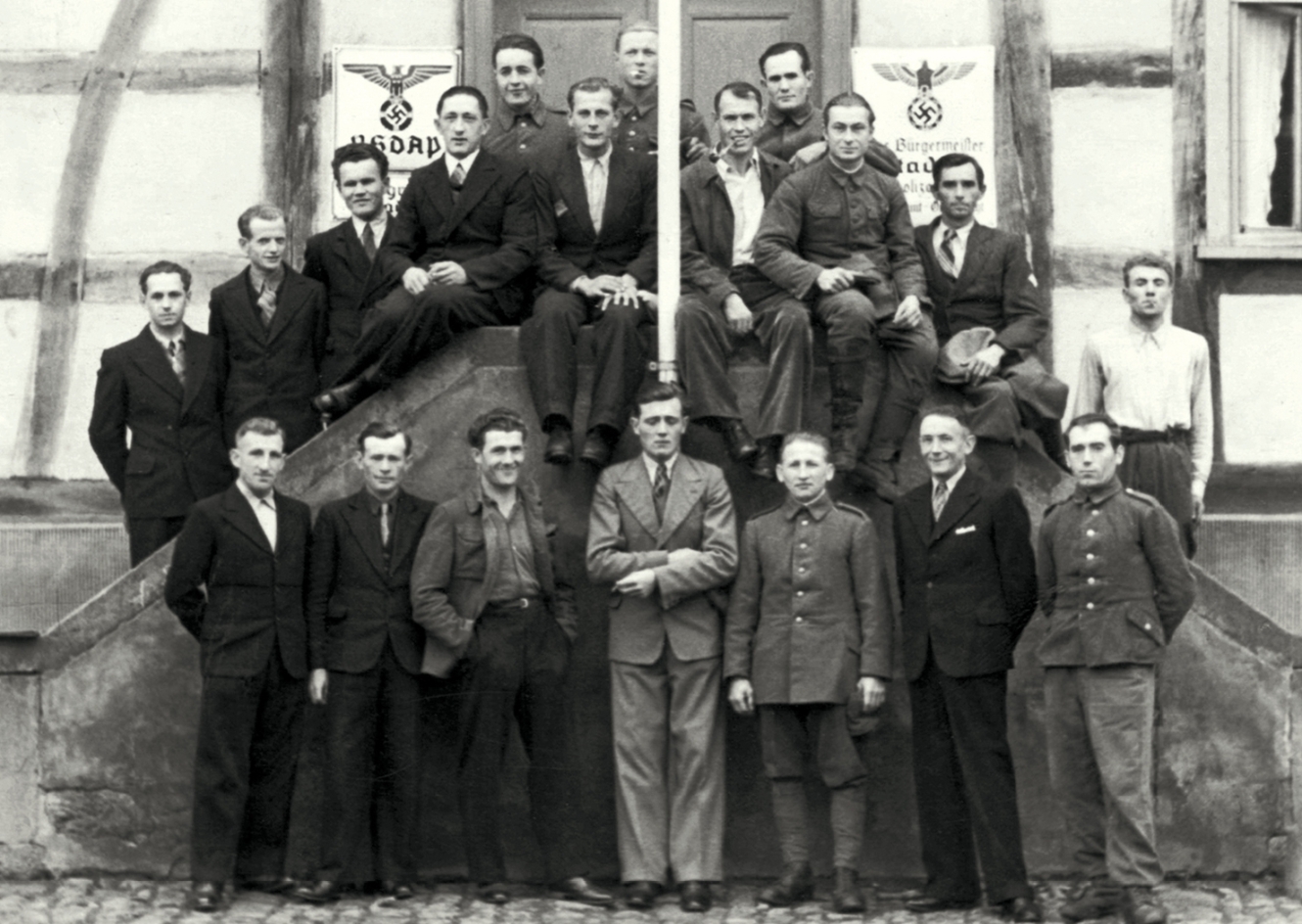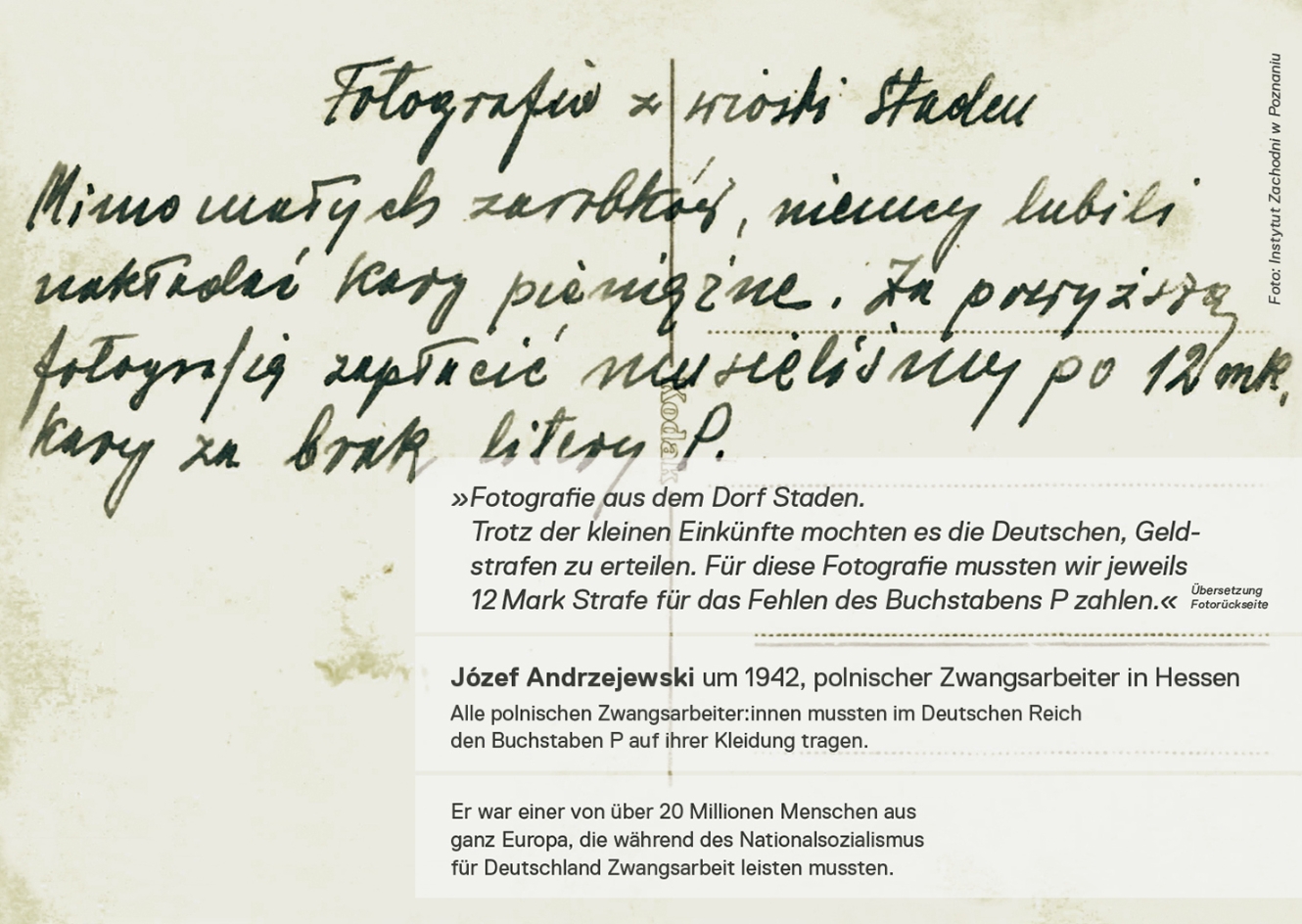

For this photograph, 19 Polish prisoners of war and civil forced laborers posed in front of the mayor's office in Staden. The German eagle and the swastika are clearly recognizable, framing the group. The man in a white shirt on the right edge of the image is standing unusually straight. Is he thereby commenting on Nazi obedience and ironically refering to the situation of those depicted?
The men are wearing different clothing. In addition to uniforms, they wear suits, and some even have casual clothing, as with the man smoking a pipe next to the flagpole. Only the man to the left of the person smoking the pipe wears a "P" on his chest as a forced laborer. Flaunting the regulation of having to wear this insignia leads to the men being fined 12 marks each. This corresponded to half of a month's pay for a Polish force laborer. The owner of the photograph, Józef Andrzejewski, noted this on the back, writing the word for "German"—"niemcy" in Polish—in small letters, indicating his contempt. Like this added commentary, the irreverent poses of the men can certainly be understood as an act of self-assertion.
Józef Andrzejewski came to Germany as a Polish prisoner of war. First, he was interned in a central camp (Stalag). After a short time, he was given the status of a civil forced laborer, like almost all Polish prisoners of war. He thereby was subject to the racial regulations of the so-called "Decree on Poles" of March 1940, which stipulated that they must identify themselves as such; made sexual relations with German women and men punishable by death; and regulated other fundamental aspects of life such as food, housing, and religion.
Józef Andrzejewski had to work for a farmer in the village of Staden in Hesse, near Frankfurt am Main.
He was one of over 20 million people from all over Europe, who had to perform forced labor for Germany under National Socialism.




